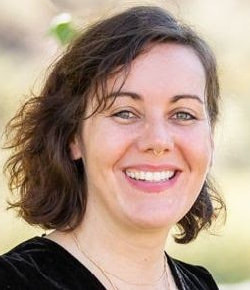July 21, 2016
Our shelter screens people in based on the complexity of the challenges that they face. These complexities have been studied among people experiencing chronic homelessness and have been found to put people at higher risk for dying if they are left out on the streets and disconnected from services. Most frequently, these complexities look like a combination of chronic illness, permanent physical disability, and living with mental health and substance use challenges. Many of our guests have been consistently screened out of services because of their drug use. This further marginalizes them and puts them at much higher risk for contracting deadly diseases and overdose. We come from a perspective that people make decisions within the context of their environment. At the IW EOS we always aim to “zoom out” to find the context for someone’s behavior rather than blaming the individual for their behavior. Every one of our guests has experienced trauma/is currently experiencing systemic trauma that has a dramatic effect on their daily lives. It is our job (and further, we believe, the job of our community) to recognize what trauma does to people and support them appropriately with that knowledge. What we know, is that trauma often leads to substance use and dependency. <<<<<<<<<>>>>>>>>> According to the Substance Abuse and Mental Health Services Administration 39% (7.9 million people) of people living with substance use disorders are also living with mental health disorders. So often when doing community education about the issues our guests face I hear people talk with deep compassion for people with mental health challenges and have a strong understanding that those challenges are not someone's fault. Yet, conversations around substance use are often met with resistance and reactions that paint people who use drugs as selfish, untrustworthy, dangerous criminals. Here's the thing, though--SO many people from all possible backgrounds use licit and illicit drugs daily. In 2014, 20.2 million people were recorded to have a substance use disorder diagnosis! That doesn't take into consideration the millions of others without a diagnosis that casually use drugs--a nightly glass of wine to reduce stress, legal marijuana, prescription drugs, caffeine, sugar, etc. etc. etc. Issues are never as simple (right/wrong, good/bad) as society wants us to believe. Part of our mission is to fight against the many iterations of stigma that our guests are up against everyday. They have survived insurmountable odds and I am honored that they choose to allow us into their lives. By providing an open and trusting environment for people that use drugs we have been able to form relationships with our guests that allow us to have real conversations with them about their use and encourage ways for them to stay safer, be proud of who they are and feel worthy of receiving love. Practically, we have policies that support the drug users at our shelter including an opiate overdose and administration policy. Based on the Good Samaritan Law, this policy allows for us to administer Naloxone, an opiate overdose reversal drug, for people that are in the midst of a deadly overdose. We have successfully reversed two overdoses that would have otherwise resulted in death because our support staff are trained in this life saving intervention. One of the overdoses was a 19 year old that had just returned from a drug treatment program with no skills or education around the risk of overdose, (significantly higher when coming out of an institution such as inpatient treatment or jail) and how to effectively stay alive. We also publicly support interventions that have been proven to save lives and decrease the negative effects of public drug use such as Safe Consumption Facilities. According to the Washington chapter of VOCAL, "Supervised consumption facilities are controlled health care settings where people can more safely use pre-obtained drugs in a hygienic environment with access to sterile injecting equipment and under the supervision of trained care staff. Safe consumption spaces provide an array of support including health care, counseling, and referrals to health and social services, including drug treatment." Recently, VOCAL brought an exhibit to Olympia to demonstrate what a room like this can look like. A number of our shelter staff swung by to check it out and we were very impressed by the opportunity something like this could provide for the overall safety and well being of our entire community. I certainly don't have all the answers, but what I do know is that "all life is sacred" as our shelter staff Jiva puts it in the photo. There is no positive change that can be made in the world or in ourselves if we stop breathing. Today, we honor the lives of those lost to stigma, shame, condemnation and fear. Your life matters, we see you and love you.
1 Comment
ProgressIn our work at the shelter and our community education efforts, we understand that we can't talk about poverty without talking about issues of race, gender, sexuality, ability, access, age, mental health, substance use and class. We refer to these overlaps of complex issues as "intersections of oppression". Most of our shelter guests experience challenging combinations of these issues in their daily lives making it incredibly difficult to navigate the world with little to no resources.
We are a values based organization and aim to make all programmatic, strategic, fundraising and political decisions grounded in our core values. We know that we won't meet our mission if we stray from our values. One way this looks day to day is that we strive to provide adequate compensation to our workers so that we can keep their skills, heart and dedication in our community serving people on the streets. We prioritize hiring people that demographically reflect the population that we serve. This includes people of color, people with lived experience, former guests, and LGBTQ identified individuals. Today, I want to focus on issues surrounding LGBTQ individuals that stay with us and work at the shelter. Depending on the study, close to 50% of youth experiencing homelessness are LGBTQ identified. Services working with LGBTQ youth experiencing homelessness have improved greatly over the years. We are lucky to have very adept organizations doing this work locally--CYS, PiPE, Stonewall Youth, EGYHOP and others. The adult homeless service network however, is generally pretty far behind the times when it comes to LGBTQ competency in adult programs. This doesn't really add up to me--people don't age out of their identity. So when they age out of youth programs and there are not competent resources for them in adult programs they are underserved and at much higher risk for experiencing mental health and substance use challenges, discrimination and violence because of their identities. We have prioritized addressing this important issue through our shelter program because many of us on staff identify as LGBTQ and also because on any given night at our shelter between 10-20% of our guests are as well. How this looks in real life is that lesbian couples can stay in the women's dorm, gay men in couples can stay in the men's dorms, all genders and makeup of couples can stay in the couples dorm, and transgendered people can sleep wherever they feel most comfortable. We have a gender neutral restroom and our men's and women's bathrooms are gender inclusive (meaning that all guests that identify with that gender can use the bathroom that matches their identity). It isn't perfect. Not at all. People still experience discrimination in our shelter, both guests and staff are misgendered (to refer to someone, especially a transgender person, using a word, especially a pronoun or form of address, that does not correctly reflect the gender with which they identify) frequently and experience hateful language and prejudice. People don't always feel comfortable or safe no matter how good our intentions are or how hard we try to make it a safe space. We are stretching the historical view of what adult sheltering looks like and to change a strongly formed mold is never easy. What gives me hope is that many of our LGBTQ guests and staff have stuck around. They keep coming back for the most part--even when it isn't perfect. By hiring people with lived experience we know that this job can expose all of our vulnerabilities and past trauma. As staff we have all dealt with feeling targeted at times and drained from the layers of oppression that play out in our workplace. Over the past few months we have been working on a plan to better support our staff by providing them benefits in addition to their hourly wages. June 28th, 2016 was an important day for us at the shelter. It was the first day in our program's history that we introduced paid holidays for our staff. This means time and half for shifts worked on 8 holidays out of each year. As a team we decided upon our list of 8 annual holidays and like everything we do... it was a values based decision. June 28th, 2016 marked 47 years after the first night of riots at the Stonewall Inn. This event is seen as one of the most definitive moments in the fight for LGBTQ liberation in this country. The Stonewall Inn is a gay bar in Greenwich Village, NYC and at the time was known to serve the most poor and marginalized members of the LGBTQ community including homeless youth. The protests and riots are widely believed to have been kicked off by Marsha P.Johnson, a Black transwoman who performed as a drag queen, and Silvia Rivera, a Puerto Rican transgender woman. Other gay, lesbian, crossdressers, transgendered folks and patrons of the Stonewall Inn took to the streets after a routine, forceful police raid to declare that they were no longer going to stand for the violence and discrimination they had faced for so long. As a shelter team, we decided that this moment in history is one that we want to publicly declare as an official paid holiday of the Interfaith Works Emergency Overnight Shelter. Thank you to the beautiful people that stood for justice in the Stonewall riots, pushing forth the efforts for LGBTQ liberation and equality. While we have so far to go, we are proud to work in our little corner of the shelter world to try and make it more livable and safe for LGBTQ people to be met exactly where they are with unconditional respect and positive regard. Growth is uncomfortable and change never comes without clash. I am honored to work with a team of individuals that actively work to understand the intersections of oppression that our guests face. This helps us be able to discuss issues that are hard, that make us grow and keep us rooted in our slow moving progress towards social justice. We understand it because we each uniquely live it in our own daily lives. Thank you to the Stonewall protesters, we honor you. |
Author
Meg Martin, LICSW, CPC, is the Executive Director for The Interfaith Works. Archives
March 2022
Categories
|
SITE MAP
Please support the businesses that so generously support us.

 RSS Feed
RSS Feed

